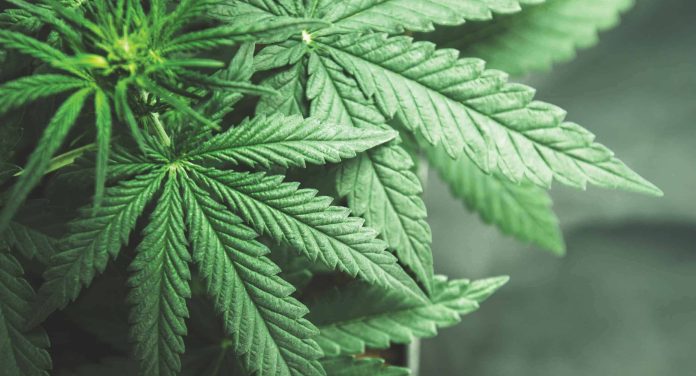On January 25, the Salt River Pima-Maricopa Indian Community Tribal Council voted to open a 30-day public comment period on proposed ordinances regarding drug and drug-related crimes, including provisions for the legalization of recreational marijuana use in the Community.
At the time, Council wanted to have something tangible that the Community membership could look at and think about while Council gained feedback on the topic.
Now that the comment period is over and Community feedback has been assessed, new comprehensive drug and drug-related statutes have been approved and will be enacted on May 1. On March 29, Council voted to approve the new statutes with a vote of 4 members in favor and 3 members opposed.
Under Sec. 6-124 of the SRPMIC Code of Ordinances, recreational use of marijuana is permitted if the person is at least 21 years of age and the amount is not more than 1 ounce of marijuana, of which not more than 5 grams is in the form of marijuana concentrate.
The use of marijuana should not occur in any public place, Community building or facility, or at any Community event, and it can only be purchased from a marijuana establishment licensed by the State of Arizona.
A person may not drive or be in actual control of any motorized vehicle while under the influence of marijuana.
To purchase marijuana for recreational use, you need to visit a licensed marijuana dispensary establishment in the state of Arizona and bring a valid state-issued driver’s license, state ID or passport.
Previously, on October 19, 2022, Council voted 6-2 to pass a medical marijuana exemption which legalized the medical use of marijuana under certain guidelines. Those guidelines are also reiterated in the comprehensive drug and drug-related statutes that will go into effect on May 1.
Marijuana Cultivation
The cultivation of marijuana is permitted if the person is at least 21 years of age and is possessing, transporting, cultivating or processing marijuana plants for personal use at the individual’s primary residence.
No more than six plants can be possessed by a single individual, and no more than 12 plants can be in possession at a single residence where two or more individuals who are at least 21 years of age reside at one time.
Cultivation of the plant can take place in a closet, room, greenhouse or other enclosed area at the residence. It must be equipped with a lock or other security device that prevents access by minors.
The marijuana plants must not be in public view without using binoculars, aircraft or other optical aids.
Medical Use of Marijuana
According to the Arizona Department of Health Services, as of April 2022, there are just over 276,000 registered medical marijuana patients in the state.
Medical use of marijuana is permitted in the Community if the person is at least 18 years old and has a valid, unexpired medical marijuana card issued by the State of Arizona.
The amount of marijuana you can use for medical purposes is not more than 2.5 ounces, of which not more than 12.5 grams is in the form of marijuana concentrate.
In order to qualify for medical marijuana use and to obtain a medical marijuana card, you must have one or more of the following conditions: Alzheimer’s disease, amyotrophic lateral sclerosis (Lou Gehrig’s disease), cachexia or wasting syndrome, cancer, chronic pain, Crohn’s disease, glaucoma, hepatitis C, HIV or AIDS, nausea, persistent muscle spasms, posttraumatic stress disorder or seizures.
A potential medical marijuana user would need to make an appointment with a state-certified doctor who can evaluate them for a qualifying condition. Then the person would need to file an official application with the DHS, signed by the doctor. The DHS medical marijuana portal is online at www.azdhs.gov/licensing/medical-marijuana/index.php.
For more information on how to obtain a medical marijuana card, head to www.azdhs.gov/documents/licensing/medical-marijuana/patients/adult-patient-application-checklist.pdf.
For more information on the ordinance, head to www.srpmic-nsn.gov/government/ordinances/.














